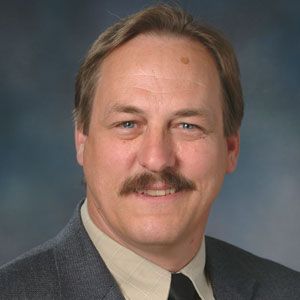Achieving Excellence in Construction
by Andrew Gimbar, Jr., PE, LEED® AP
 Welliver employees come to work each day to construct buildings. Our efforts typically support customers in organizations whose jobs are not directly related to construction but rather, in manufacturing, education, medical care, retail sales, wholesale, warehouse storage, etc. Subject to dynamic influences, the facilities in which they work may be too small, inefficient, unattractive, unsafe, or otherwise unsatisfactory. Recognizing this, someone in pursuit of excellence may champion a project fostering new-found excellence. Thus, a project is born.
Welliver employees come to work each day to construct buildings. Our efforts typically support customers in organizations whose jobs are not directly related to construction but rather, in manufacturing, education, medical care, retail sales, wholesale, warehouse storage, etc. Subject to dynamic influences, the facilities in which they work may be too small, inefficient, unattractive, unsafe, or otherwise unsatisfactory. Recognizing this, someone in pursuit of excellence may champion a project fostering new-found excellence. Thus, a project is born.
Now members of the customer organization will assume critical roles that will require them to exercise skills not necessarily required to carry out their normal responsibilities. Although highly skilled at their jobs, they may find additional skills are needed to add value to the project. Focusing on construction projects, professional consultants such as architects, engineers, construction managers, cost estimators, and tradesmen are needed. Although these professionals will have special skills, they will be most effective when supported and appropriately directed by communicative owner’s representatives. After all, there is typically much at stake; large investments in time and money will depend upon sound decision making to achieve the essential goals, while staying within budget, meeting code requirements, and addressing stakeholder concerns.
Independent of project size, divergent stakeholder concerns, experiences, skills, and practices are expected to create conflict including:
• Total cost may conflict with available budget and compromise is required to get to the finish line
• Tremendous regard for a project element may foster strong and compelling arguments and opposition to competing concerns
• Those most affected by project outcome have no previous project experience and have no expectations of future experiences. Nonetheless, they want to get it right.
• Goals are likely to be of paramount importance to those who will work in the facility, and they will have to be balanced with things like safety, sustainability, aesthetics, disruption, and schedule.
Resolving this conflict may cause trying circumstances, and for the best outcomes, perfection must yield to excellence. Respectful inclusive communication fostering generous participation from all stakeholders will develop deliberate and informed decisions. These processes are what the project participants will remember most. And well thought out and inclusively generated solutions to the problems encountered will produce the best results. When projects are delivered with strong input from the owner’s team, decisions will represent the customer’s needs, and imperfections can be accepted as gateways to excellence.
Andy has been a champion of sound decision making for more than three decades. He solves problems and assures high levels of satisfaction by end users within the built environment. Supporting construction management, Andy fosters innovation and excellence in sustainable mechanical system application. He estimates mechanical system construction costs subject to a broad range of evolving information in both pre-construction and construction phases of job development. Andy knows that pre-construction services support owner’s representatives, design professionals, and project stakeholders by identifying options and tradeoffs with iterative cost estimates for mechanical portions of their projects. Andy refines the information as design is developed in phases: conceptual, schematic, design development, and construction documentation. As Director of Mechanical Services and Mechanical Estimator for Welliver, Andy works with clients representing a broad range of market sectors including higher education, industrial, healthcare, and K-12 education.





